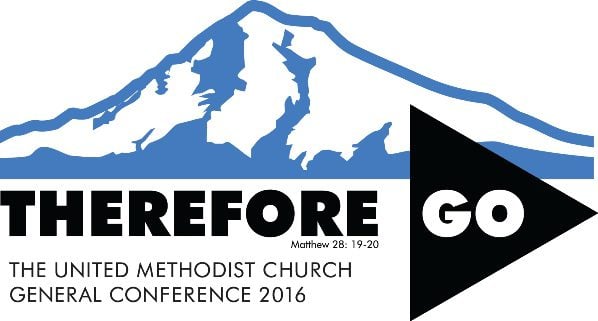As expected, the conservative evangelicals at General Conference have a solid majority. It is likely that they will not only reject every possible compromise for our Book of Discipline, but also tighten the noose by instituting a mandatory minimum punishment for LGBT clergy and clergy who officiate same-sex weddings. As I wrote in a previous blog post, this would represent the crossing of a red line for progressive United Methodists like me. We have a very unique situation in the United Methodist Church right now because our geographic regions vary drastically in their support for LGBT inclusion. Some areas are 100% in favor of it, while others are 100% against it. If the ideological conservatives get everything they want and refuse to compromise at all, we will have a schism. The question is what form it will take. We have three options before us.
1. Regional autonomy
The least disruptive decision that could be made at this point would be to empower annual conferences to decide how to handle LGBT inclusion. There are various different proposals for doing this with advantages and disadvantages to each. In the Western and Northeastern Jurisdictions, the anti-gay stance of our denomination is crippling our pastors’ ability to do evangelism in the community. The question conservatives need to ask is whether the denomination’s stance on homosexuality is a gospel issue. In other words, do you think that people will go to hell for supporting gay marriage?
If so, then it makes sense to prevent all United Methodist pastors everywhere from participating in it. If you think people can support gay marriage and still be Christians, then you need to ask whether you really want to create a stumbling block for the gospel in cultural contexts outside of the Bible belt. In Mark 9:42, Jesus says, “If any of you put a stumbling block before one of these little ones who believe in me, it would be better for you if a great millstone were hung around your neck and you were thrown into the sea.” If supporting gay marriage means you’re not really Christian, then those of us who support it are the stumbling blocks. If it’s not an essential gospel issue, then those who make it a stumbling block will be held to account for every disciple who is lost to Jesus because of the church’s anti-gay stance.
2. A planned split
If a majority of General Conference delegates are unwilling to be part of a church where LGBT people across the world are being ordained or married, then another option is for us to plan a split. This would be a disaster in which we would lose lots of church members, but it would have the advantage of being something we negotiate thoughtfully. The Good News lobby group has been advocating a split for a long time because their pastors are hemorrhaging members who don’t even want to be part of a church that’s having any conversation about LGBT inclusion. Another advantage of deciding to split is that it would free us up from all the hours of energy spent arguing about the LGBT issue. Though it would result in lost membership, having a clearly defined crisis might also provide the catalyst for missional giving. Our survival will be at stake and we will be forced to start a lot of new things. A planned split would give us the opportunity to close unfruitful, toxic congregations and focus on launching new ones.
3. A chaotic split
The worst case scenario is unfortunately the most likely one, because it seems like the path of least resistance. If the ideological conservatives play winner-take-all at General Conference and they start putting the 111 LGBT clergy and 1500 ally clergy on trial, United Methodism will go through four years of complete hell. Since these trials will provide the opportunity to emulate Christ before the Sanhedrin, they may be fruitful for as a catalyst for progressive church planting, but the denomination as a whole may not survive. If the conservatives refuse to compromise at all, the progressives are not going to slip out the back door quietly. We will go out the front door and we will use the free media as an opportunity to articulate a detoxified version of Wesleyan theology.
Hard-line conservatives have been protected from the devastating consequences of their ideology by the bishops who have refused to put pastors on trial and create a media circus. But it may be that we need to convene thousands of Sanhedrins before the ideologues will be “cut to the heart” (Acts 2:37) by the recognition that they are crucifying Jesus over and over again. It may be that this third option is the crucifixion by which God will rescue us from our institutionalism and resurrect us into two or more movements that each have contagious synergy around a coherent gospel. Because Wesleyan theology has always tended to be pastoral and pragmatic, it lends itself to fuzziness. I suspect that more than a few conservatives envy the theological clarity of the Calvinists who seem so much more successful at building megachurches. Fierce conflict does produce fruitful theological reflection amidst the pain. But make no mistake, the third route represents the greatest threat to the financial viability of United Methodism and our ability to support global ministry.













